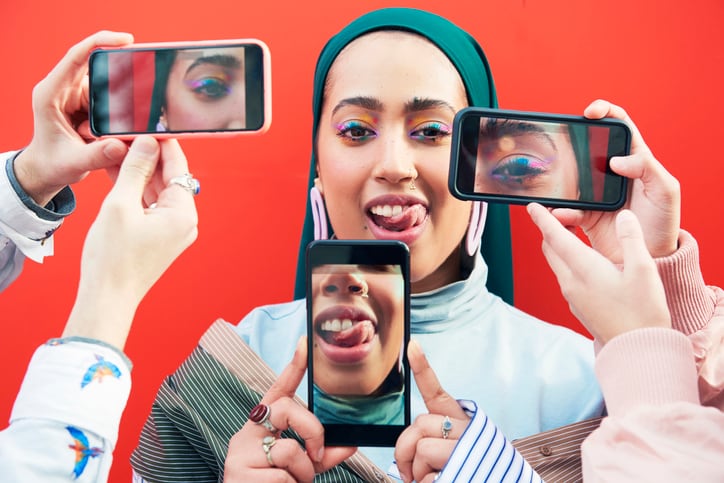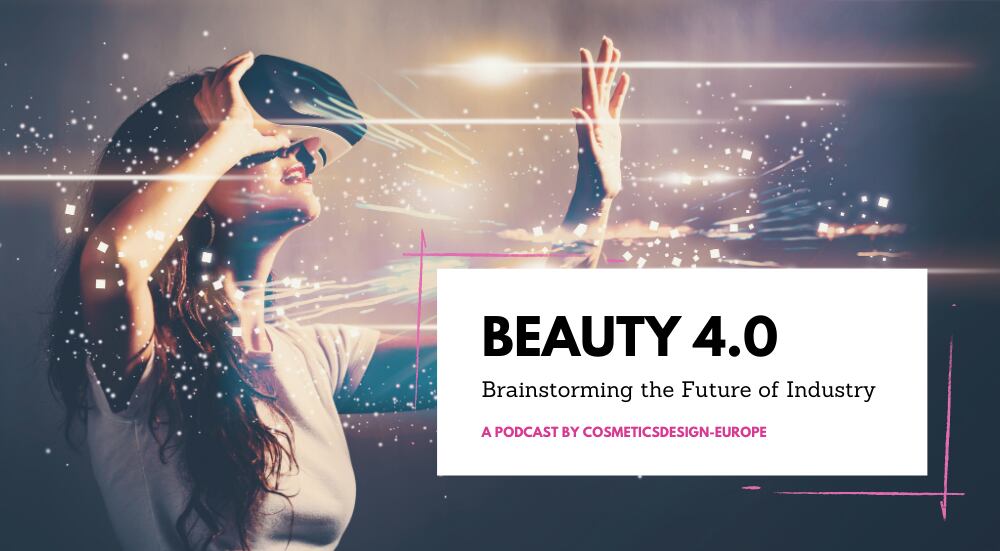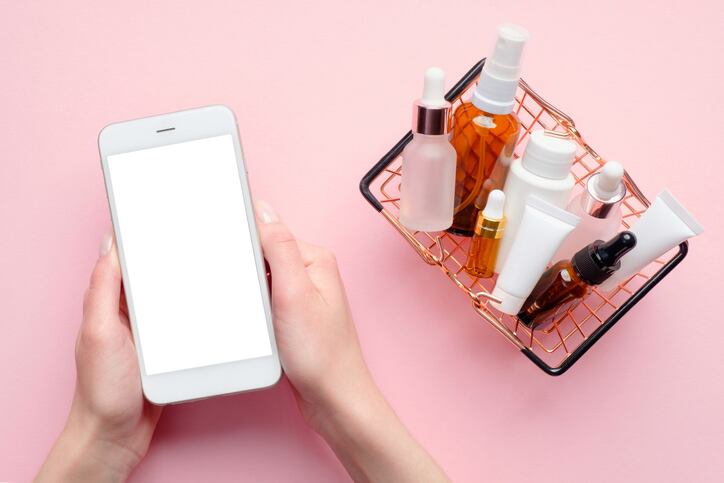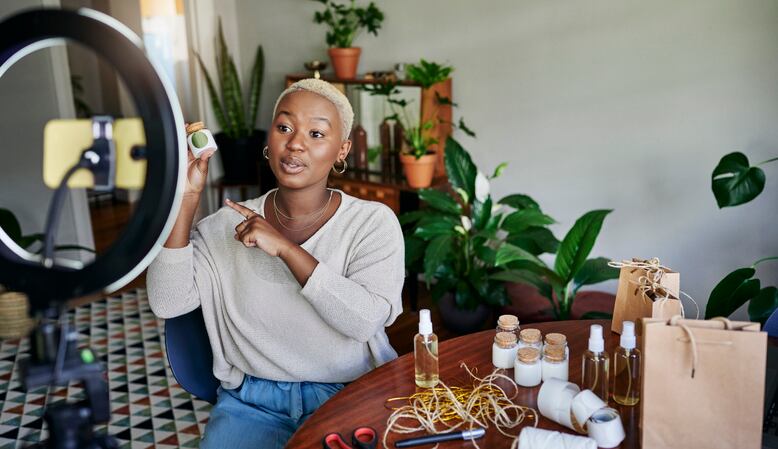Just over half (56%) of consumers worldwide preferred to follow ‘everyday influencers’ – friends, family and peers – on social media over celebrities and traditional influencers, according to a study from user-generated content specialist Bazaarvoice. The research, involving 9,000+ consumers from the UK, US, Canada, Germany, France and Australia, found 38% of consumers believed everyday influencers to be a more trusted source for authentic and genuine content. Findings also showed that 86% of consumers sought out authentic user-generated content (UCG) for products they had never tried before and 68% relied on USG for tips and ideas on products they had used before.
So, as the influencer world continued to rise in importance, what did these findings mean for beauty?
TikTok and Instagram Reels have ‘shone a light’ on everyday influencers
Ed Hill, senior VP of EMEA at Bazaarvoice, said the research was certainly relevant for beauty brands.
“Influencers have become invaluable for beauty brands, and that hasn’t changed – social media remains the ideal channel for brands to connect with consumers,” Hill told CosmeticsDesign-Europe.
“Short-form video content platforms like TikTok and Instragram Reels have, however, shone a light on the everyday influencer and subject matter experts that are producing quality engaging content and authentically recommending brands and products to their audiences,” he said.
The latest Bazaarvoice research, he said, indicated that subject matter experts were “most trusted” in sharing authentic and genuine content – “which includes everyone from beauty gurus to fashionistas”.
Rising demand for transparency – #nofilter no longer enough

Importantly, Hill said the research proved global consumers were becoming “increasingly conscious of inauthentic practices”, with 80% wanting stricter rules on influencers to disclose photoshop or filters used on public content.
Despite an array of advertising regulations in place across global markets, two in five consumers felt regulations had made no difference to how much they trusted influencers or how authentic influencers were. One-third of UK consumers, for example, wanted influencers banned permanently from social media for breaking advertising laws.
“The key now is that shoppers want to follow individuals they think they know, and they can trust,” Hill said. “For beauty brands, that means being diligent about selecting an influencer that best aligns with its values.” Beauty and health consumers were also looking for content and recommendations they could “rely on”, he said.
“…Just because a user has a large following and posts about the beauty industry, it doesn’t necessarily mean they’re the right influencer for every beauty brand. It’s essential to take the time to determine whether an influencer is truly the right fit and if they can help a brand achieve its business goals.”
Branded beauty content can ‘still plan an important role’ but USG key
Hill said branded beauty content should “still play an important role”, providing the influencer content aligned with brand values and stimulated user-generated content and user engagement.
“When consumers look for guidance on what to buy, they want advice from people they trust – whether that is a friend, a brand or a social media influencer. Consumers support the brands that reflect who they are or who they want to be, and in turn create user-generated content about brands they identify with, support or aspire to be like (…) Beauty brands should always look to what customers are posting and empower them to market the brand themselves.”
User-generated content (USG) would be key moving forward, Hill said, because it enabled brands to connect with customers, rather than just selling to them.
USG on TikTok and the rise of social commerce
Asked what sort of opportunities there were for beauty and the influencer world of social media presence, Hill said: “The developments in social commerce and the skyrocketing growth of platforms like TikTok offer huge opportunity for brands in the beauty industry, both from a user-generated content perspective and from a wider advertising perspective.”
“The everyday users with an opinion on social media have the power to influence and build audiences in a way that wasn’t possible before,” he said.
From creating content about the latest beauty trends through to sharing beauty tips, users were influencing one another every day, which could have a “greater impact” than branded content, he said.
“In fact, recent research found that the amount of content a brand generates for a platform like TikTok has little impact on its popularity. Instead, it is the power of the user-base in the form of hashtags and viral content which has the most power to influence consumers, and that all comes down to user-generated content,” Hill said.




